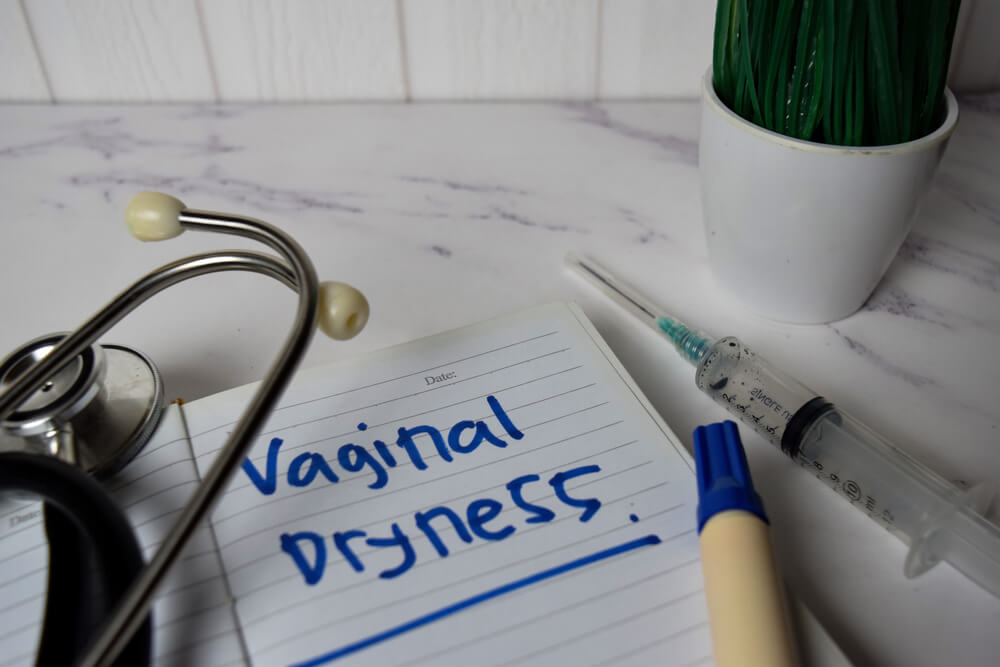In the intricate landscape of women’s health, certain topics often tiptoe around the edges of conversation. Vaginal dryness is one such subject, affecting women across ages and stages of life. Understanding its intricacies is crucial for empowered self-care.
This article talks about vaginal dryness as a medical condition, vaginal dryness symptoms, causes, and effective treatment options. All this should be answered also by your chosen gynecology specialist in Miami, Florida, so when deciding on a doctor who will help you keep you reproductive health intact, make sure you explore different options. OB/GYN Associates of Miami are an excellent place to start.
What is Vaginal Dryness?
Vaginal dryness is a common but often overlooked condition that affects women at various stages of life. It refers to the inadequate lubrication of the vaginal tissues, leading to discomfort, itching, and potential pain during intercourse. This condition can arise due to a myriad of factors, so causes of vaginal dryness can include hormonal fluctuations, medications, health conditions, and emotional stress. Hormonal changes, especially during menopause, childbirth, or breastfeeding, can significantly impact estrogen levels, contributing to dryness.
Recognizing the vaginal dryness symptoms, such as itching, discomfort, and pain during intimacy, is crucial for seeking timely intervention. Fortunately, various treatment options, including moisturizers, lubricants, hormone therapy, and lifestyle modifications, empower women to address and manage vaginal dryness effectively. Open communication with healthcare providers and a proactive approach to gynecological health play pivotal roles in ensuring overall well-being and comfort for women experiencing vaginal dryness.
Recognizing Vaginal Dryness Symptoms
As mentioned, it is very important to recognize the symptoms of this condition in order to answer the question of how to treat vaginal dryness. Here are some of the most common ones:
- Itching and Discomfort: Itching and discomfort are common symptoms associated with vaginal dryness, signaling an imbalance in the natural lubrication of the vaginal tissues. The persistent itchiness often stems from the lack of moisture, leading to irritation in the sensitive genital area. Women experiencing vaginal dryness may find themselves constantly grappling with an unsettling itch, impacting their daily comfort.
This itching can exacerbate during activities such as walking or sitting, further highlighting the need for effective management. Addressing the root causes of vaginal dryness and adopting appropriate interventions, such as moisturizers or lubricants, can bring relief from the persistent itching and discomfort, restoring a sense of well-being and comfort. Pain During Intercourse: Dry vagina can lead to pain and discomfort during sexual activity, impacting intimacy and relationships.
- Burning Sensation: A burning sensation is another notable symptom associated with vaginal dryness, intensifying the discomfort in the genital region. This sensation can manifest as a feeling of heat or irritation, particularly during activities like urination. Women experiencing vaginal dryness may report a heightened sensitivity and burning discomfort, adding to the overall distress.
The burning sensation can significantly impact daily life and intimate activities, underscoring the importance of addressing vaginal dryness proactively. Effective treatments, such as moisturizers, lubricants, or medical interventions, can alleviate the burning sensation, restoring comfort and improving the overall quality of life for those affected.
- Increased UTIs: Vaginal dryness can contribute to an increased susceptibility to urinary tract infections (UTIs). The lack of proper lubrication in the vaginal area makes it easier for bacteria to enter the urethra, leading to UTIs. Women experiencing vaginal dryness may find themselves facing a higher frequency of urinary tract infections, which can be both uncomfortable and disruptive to daily life.
Managing and treating vaginal dryness is essential not only for addressing immediate discomfort but also for reducing the risk of recurrent UTIs. Adopting strategies such as staying well-hydrated, maintaining good personal hygiene, and seeking medical advice for appropriate interventions can play a crucial role in preventing and managing UTIs associated with vaginal dryness.

The Culprits: Causes of Vaginal Dryness?
Understanding the root causes is crucial for targeted treatment. Vaginal dryness can be attributed to various factors:
- Hormonal Changes: Fluctuations in estrogen levels, particularly during menopause, childbirth, or breastfeeding, can contribute to vaginal dryness.
- Medications: Certain medications, including antihistamines and antidepressants, may have vaginal dryness as a side effect.
- Health Conditions: Chronic conditions such as Sjögren’s syndrome and diabetes can impact vaginal lubrication.
- Emotional Stress: Emotional stress can significantly impact vaginal health, potentially contributing to conditions such as vaginal dryness. Stress triggers the release of hormones that may disrupt the delicate balance of estrogen, affecting moisture levels in the vaginal tissues. Incorporating stress-reduction techniques, such as mindfulness, meditation, or counseling, can play a vital role in promoting both emotional well-being and optimal vaginal health.
How to Treat Vaginal Dryness: A Roadmap to Relief
In order for find relief, and cure the condition you are facing, we are bringing you some of the most popular treatment options when it comes to vaginal dryness.
- Moisturizers and lubricants serve as invaluable allies in the battle against vaginal dryness. These over-the-counter solutions provide immediate relief by replenishing and maintaining moisture in the vaginal tissues, alleviating discomfort and itching.
Whether applied regularly or as needed, these products offer a simple yet effective way to enhance comfort and restore the natural lubrication essential for a healthy and pleasurable intimate experience.
- Hormone therapy stands as a potent intervention for managing vaginal dryness, particularly when hormonal imbalances are at the root of the issue. This treatment involves replenishing estrogen levels, which can decline during menopause, childbirth, or breastfeeding. By restoring hormonal balance, hormone therapy not only addresses vaginal dryness but also contributes to improved overall vaginal health and well-being.
- Lifestyle modifications play a pivotal role in addressing and preventing vaginal dryness. Staying adequately hydrated is essential for maintaining overall bodily functions, including vaginal health. Additionally, avoiding irritants, practicing stress-reduction techniques, and adopting a healthy lifestyle contribute to a supportive environment for optimal vaginal well-being.
- Prescription medications offer a targeted approach for addressing underlying causes contributing to vaginal dryness. In cases where hormonal imbalances or specific health conditions are identified, healthcare providers may prescribe medications to restore balance and alleviate dryness. These prescription interventions aim to provide comprehensive and tailored solutions, addressing the root causes and promoting lasting relief from the symptoms of vaginal dryness.
Empowering Women: Taking Charge of Vaginal Health
Prevention tactics and medical consultations are also two very important parts of avoiding the struggle with the mentioned conditions so regular check-ups such as routine gynecological check-ups are essential for early detection and management of vaginal dryness. Also, open communication i.e. discussing concerns with healthcare providers facilitates personalized care plans and ensures optimal outcomes.
Ask For Help!
In the tapestry of women’s health, understanding and addressing vaginal dryness is a crucial component. By recognizing symptoms, understanding causes, and exploring effective treatments, women can reclaim control over their vaginal health.
Remember, an informed approach is the first step towards a life free from the discomfort of vaginal dryness. When it comes to an informed approach, our team of medical experts is at your disposal, regardless if you only want to speak to someone or you need to start a treatment plan. Do not wait for the condition to get worse, call us right away. Your health is our priority!


